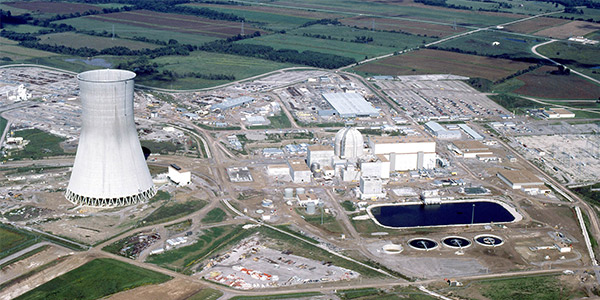By Amanda Durish Cook
Missouri regulators are wrapping up a probe into the self-commitment and self-scheduling of generation into wholesale energy markets, questioning whether the practice is good for customers.
Though the Missouri Public Service Commission might take steps to begin curbing the investor-owned utility practice of self-scheduling resources in MISO and SPP, regulators so far have not suggested any action, instead labeling the investigation opened last month as a simple fact-finding mission. The agency said it‘s currently examining whether the practice benefits or harms ratepayers.
The PSC also directed the state’s utilities to explain their approach to resource bidding and how they decide between self-scheduling and bidding into the market (EW-2019-0370).
Commission staff will file a report on their findings no later than Aug. 16.
Comments on the docket have so far fallen along predictable lines, with utilities defending self-commitments as necessary for the health of fossil-fueled resources and environmental nonprofits criticizing the practice as a means to keep uneconomic coal plants operating.
For Reliability
Ameren Missouri said while it self-commits several of its units in the MISO market at minimum output levels under the RTO’s must-run commitment mode, it does not self-schedule its units’ dispatch.
The utility explained it self-commits its coal fleet when those units will be expensive to restart, are being tested or to stave off forced outages or higher maintenance costs due to inefficient unit cycling. The company also pointed out its Callaway Nuclear Energy Center must remain online, so it designates the nuke as a must-run resource in MISO.
Ameren said MISO probably experiences more self-commitments than SPP due to it having more nuclear generation in its footprint.
Kansas City Power & Light similarly claimed its fossil units are only self-scheduled in SPP for “safety, reliability, economic and environmental compliance reasons.”
KCP&L said it must sometimes manage the number of thermal cycles for the sake of a plant’s longevity or run a steam-fired power plant to maintain reliability during cold weather.
“SPP’s market model isn’t always able to consider risks to KCP&L customers’ reliable power supply,” the utility said.
KCP&L said it also self-commits for compliance and post-outage testing, to keep wind generation economic and to commit units with startup times greater than 24 hours, something SPP doesn’t currently offer.
“The SPP market model does not currently do a good job committing large, baseload units with long lead times, large startup costs and long minimum run times,” KCP&L said.
In comments, Ameren Missouri raised a similar complaint with MISO’s day-ahead market algorithm, saying the limited, 24-hour advance economic evaluation is inadequate for making decisions on generation with long lead times that can also become worn out by cycling.
MISO — which has long kicked around the idea of implementing a multiday market — recently announced it will roll out a new and comprehensive multiday operating margin forecast — although it will not tie financial commitments to the new forecast. (See “MISO Eyeing 6-Day Margin Forecast” in MISO Market Subcommittee Briefs: July 11, 2019.)
Ameren Missouri said it strives to sell energy into the market only when it stands to benefit customers, but that it also must take unit longevity into account when making commitment decisions.
Wasteful?
Renewable energy advocates Advanced Power Alliance (APA) and Clean Grid Alliance (CGA) pointed to a spring Grid Strategies report that concluded self-scheduled resources should be brought into the organized markets. The report estimated self-scheduled coal plants caused excess fuel costs of at least $85 million in PJM and $127 million in MISO in 2017. The groups also cited 2018 Union of Concerned Scientists research that estimated coal generation self-scheduling in PJM, MISO, SPP and ERCOT places a $1 billion burden on ratepayers annually.
APA and CGA said self-scheduling and self-commitments muddy the intended transparency of RTO markets, adding self-scheduled generation is “often less responsive to market prices” and can increase prices passed on to consumers when other market generation is available at a lower cost.
“The issue before the commission in this case goes directly to the heart of market activity within MISO and SPP. The self-commitment and self-scheduling of generation can undermine the transparency created by these markets, as well as the overall goal of producing a reliable and economic generation commitment and dispatch that is good for consumers,” the groups said.
“It is no secret coal generators nationwide have struggled to remain economically competitive, which has a detrimental effect on ratepayers,” the Sierra Club commented. “Excessive and unwarranted self-generation by these same generators could compound the negative economic effects on ratepayers.”
The environmental group urged the PSC to compel utilities to provide the same, detailed reasons behind the instances of self-commitment and self-scheduling they provide to MISO and SPP.





